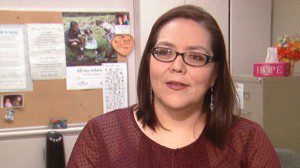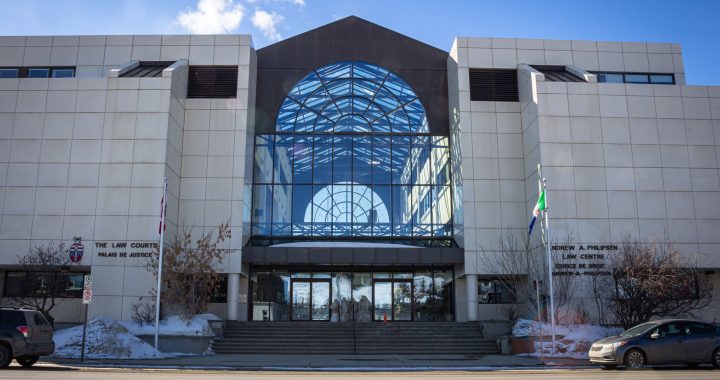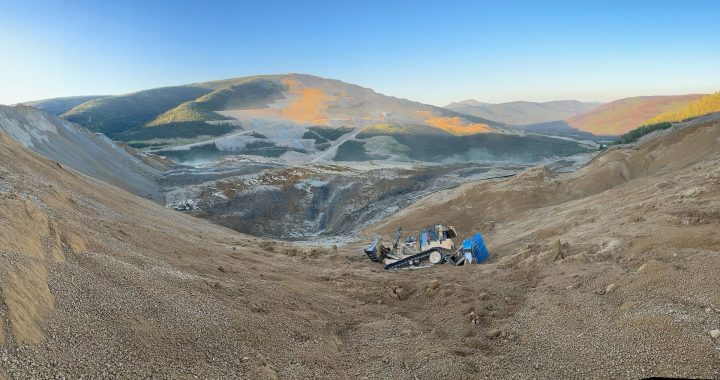Trina Roache
APTN Investigates
A former social worker in Nova Scotia says Mi’kmaw Family Services is failing families by hiring non-Mi’kmaq workers who don’t understand the culture or know the communities they’re working in.
Elizabeth Paul is now the health director for the Millbrook First Nation but worked with MFS when it first opened its doors in 1985.
“It was focused almost completely on Aboriginal staff delivering a service that was aboriginally sensitive or in a culturally safe way,” said Paul.
Paul has spent the last year meeting with health directors from other First Nations in Nova Scotia, who were all hearing similar complaints over how child welfare was playing out in their communities.
“We have some serious concerns about what’s happening,” said Paul. “Mi’kmaw Family not respecting the families in our communities, separating families, children not going back home because of many problems.”
An audit written five-years ago revealed serious problems with the agency’s work in child protection including the high caseload being carried by social workers who weren’t meeting provincial standards.
The agency has worked to address those issues, but an even bigger concern for many is who is doing the job. The social workers at Mi’kmaw Family & Children’s services are predominantly non-Indigenous.
Another internal report, this time written in 2013 by Cooney Consulting and obtained by APTN states, “with an increasing number of non-Mi’kmaw staff, especially in senior positions, staff identified a loss of cultural competency.”
“It’s not working,” said Paul. “They don’t know the families. They don’t know the connections in the community. They don’t know how to protect the children in the community, which I believe is possible.”
Mi’kmaw social worker Corrina Milliea knows this firsthand. While her office is down the hall from Paul at the Millbrook Health Centre today, she started her career working in child protection for Mi’kmaw Family & Children’s Services.
“I enjoyed working there,” said Milliea. “I knew I was making a difference for my people.”
Milliea worked out of the office on the Indian Brook First Nation. It’s one of two offices the agency has that covers 13 Mi’kmaq communities across Nova Scotia. The other office is based on the Eskasoni First Nation in Cape Breton, the largest reserve in the province. More of the staff working out of the Eskasoni office are Mi’kmaq.
“And it does matter.” said Milliea. “I was brought up on reserve, I knew a lot of what our people are going through, I know what they suffer through with welfare and I just know what the reserve is all about.”
According to Milliea, cultural understanding isn’t just about powwows, drumming or smudging. It’s having an understanding of how people are connected, understanding community dynamics and the nuances of how Mi’kmaq people interact socially.
“I was able to go in and take off my shoes and sit down and have tea with them, like that wouldn’t bother me,” said Milliea. “And then you’d see somebody else wouldn’t be able to do that. They would stand at the door and talk to them at the door. Whereas I’d be like walking in and sit down and talk to them. And I wouldn’t jump into asking them questions right away. I’d let them get comfortable first to talk to me and then when you have a non-native or native that didn’t grow up on reserve will come in and want to deal with the matter right away, like here’s the questions, get this over and done with and let’s go.”
Milliea worked for the agency three years ago when there wasn’t much in the way of what’s called cultural safety training.
“So people working there were just kind of learning as they were going, said Milliea. “And there were a lot of non-native workers that came into work at Mi’kmaq Family who don’t know much about the culture.”

Mi’kmaw lawyer Jennifer Cox works with Nova Scotia Legal Aid. She sees the tense dynamic between families and the agency. In the communities and in the courtroom.
“It’s not a question of race really, it’s a question of their understanding of the communities they’re serving and it’s really getting in the way of them doing their job,” said Cox. “They don’t have that connection. They don’t understand the family backgrounds and they’re so uncomfortable. It’s amazing to me how many times these poor social workers come in the community and they’re literally shaking in their boots when we have meetings on the reserve and that’s terrible. The clients see that, it’s really uncomfortable, it’s not what it should be. We need to stop that, it needs to be fixed.”
It goes deeper than decisions social workers make on cases. The agency is there to help. And families need to be able to work with the agency to do what they need to do to get their children back. The cultural friction can get in the way.
“And because of this vilified relationship,” said Cox, “the parents are not engaging with the agency’s social workers. They’re not communicating and things are not getting resolved in a positive way.”
Child welfare is a difficult job. Addiction, family violence, neglect. By the time social workers are on the doorstep, the family is in crisis.

Social worker Kristen Basque knows from experience that being Mi’kmaq doesn’t always soften the blow.
“There’s times when I’ve had clients who I grew up with since we were little kids and it doesn’t make it any easier just because I’m Mi’kmaq to go and knock on their door and say you know what? These are some of the child welfare issues we need to straighten up or we have to take your children into care, it doesn’t make it any easier, it doesn’t matter who you are.”
But the Cooney report revealed racial tension within the agency itself. The authors of the review interviewed agency staff and noted “two broad categories; new, young, predominantly non-Mi’kmaw, and long-time employees, older and Mi’kmaw. These two groups had different world views and experiences, values, and information. These differences may result in a stressful work environment for many due to unaddressed conflict.”
APTN obtained an early draft of the Cooney review which included feedback from senior management at Mi’kmaq Family & Children’s Services. In reference to the racial tension, the agency responded, “the issue has been significantly overstated in this report, the issues are more worker-specific rather than racially motivated and are being addressed but not necessarily the way the instigators would prefer.”
The agency goes on to say it has a new personnel policy to help cope with conflict management. And it’s now doing cultural sensitivity training for staff.
Basque said tension in the office has less to do with culture clash than it does with the kind of work they do. “Because we all work under very stressful circumstances, it’s always like you’re on,” said Basque. “It’s very draining sometimes, but we do the very best we can and we support each other because we’ve seen hard times at the agency.”
Basque doesn’t do child protection anymore. She runs the family group conferencing, a talking circle that allows families involved with the agency to figure out how to resolve their issues. And culture is key to the work she does now.
“I speak the language,” said Basque. “So I talk to them in Mi’kmaq and say we have to move forward, we cannot change what has happened but how can we try to make things right again.”
A motto that could apply to the larger issues facing both the agency and Mi’kmaw communities.
@trinaroache











